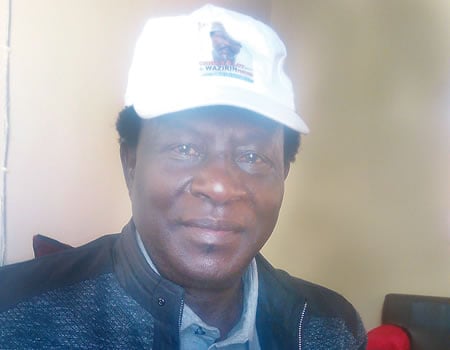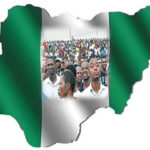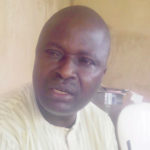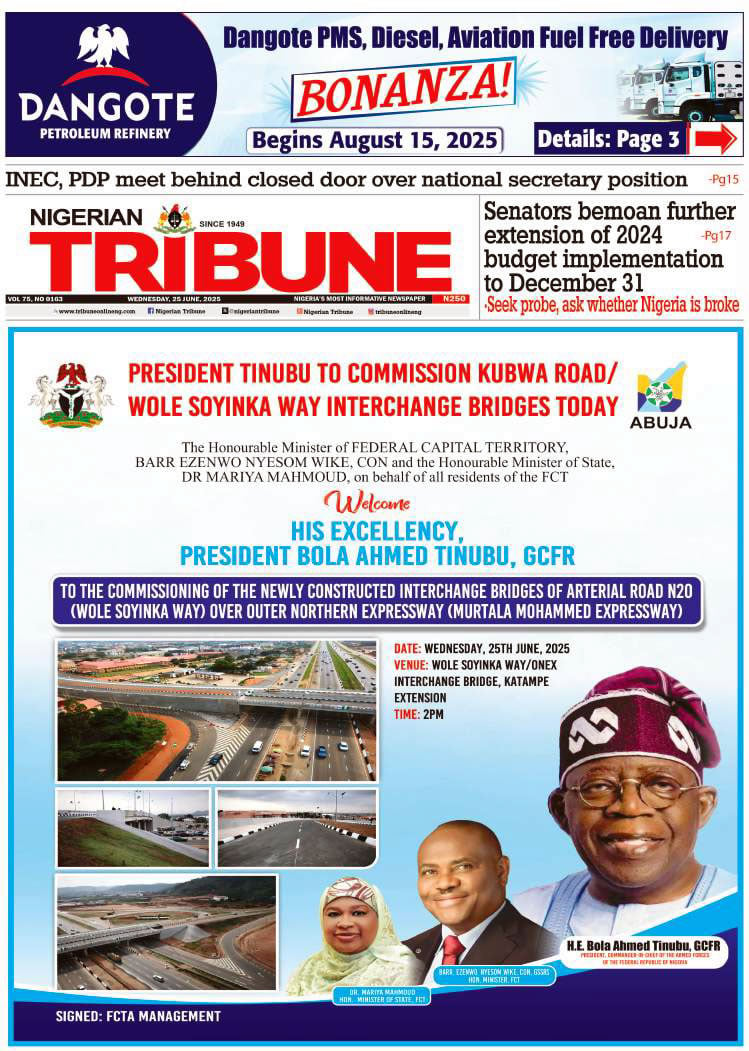What is your assessment of the present political situation in the country compared to the previous republics? Do you think there has been any improvement?
The politics of 60s and 70s were characterised by violence; we all know how it was difficult for the late Chief Obafemi Awolowo to penetrate the North, and also how the late Sarduana of Sokoto faced similar challenges in the South-West. Then, it was merely a region-based politics. Even in the Second Republic when the National Party of Nigeria came to power, the situation only changed slightly. Today, Civil Servants openly oppose the government they are serving and we have slightly moved from regional to national politics. In 2015, Buhari moved round the country freely, the governors, without bitterness, willingly surrendered stadia and other venues to him for political rallies. Apart from this, he got the required number of votes in most of the states of the federation.
We have moved up in term of national politics and integration. People are no longer putting their eggs in one basket; they want to diversify. But there are still areas like the South-West and North-West that have strong ethnic connections in term of political parties. When we have confidence in one another, things will change for the better. But we are making progress slowly and it is better to move slowly than to move in high speed, which can be disastrous.
You said we are making progress, but issues of vote buying and other political atrocities are now in vogue.
It is the expression of the masses on the political elite; various political representatives have, over the years, shown that they are more interested in their families, relations than those who voted for them. They are more interested in themselves than those who voted for them. So, the electorates see the election period as an opportunity to collect their shares. It is common in Nigeria that the moment a governor is elected, he will surround himself with his family members, and people have lost faith in their representatives. They have lost faith in the system.
For example, can you believe that anytime the government in power has Senate President and Speaker of House of Representatives and the government presents a budget, there is always a problem? The party in government presented a budget in September of the preceding year and it is left unapproved until the following year by the same people in the same party? So, where is the loyalty to the party and to the government? Where is the loyalty to the people? As a result of disagreement, these principals defected to another political party. So, how do you describe that, it means right from the outset they were in opposition and out to frustrate the government and in the process punish the people, because if there is no approval, some of the basic amenities that the government should provide will suffer. Electricity, education, health, among others, will definitely suffer and the people will suffer and yet these people are saying they want to return to the Senate or become the president of Nigeria. It is nothing but a shameless display of personal interest as opposed to national interest, which they swore to uphold. Our system is rotten; there is no conscience. At least, for the sake of the people, they should have approved the budget in spite of the differences they have with the government.
The current administration at the centre came to power based on the change mantra and now, the slogan is next level. What do you think has changed to justify that next level slogan?
I want you to cast your mind back to 2015 during the contest between President Muhammadu Buhari and former President Goodluck Jonathan. If you look closely; for the first time, federal civil servants were not paid salary for three months because the money was not there. States owed 15 months’ salary not to talk of other allowances when PDP was in power. This country was bankrupt; it was just like a house that was broken. The question is how do you turn such into a house within just three years in Nigeria? Also, the level of corruption during Jonathan’s time was very high; Nigeria was like a sinking ship such that even to stabilise it by President Buhari was a miracle. We don’t know how Buhari did it such that the foreign reserve has picked up again. The Federal Government gave bailout to governors to pay salary and to stabilise the system.
The intervention of President Buhari has stabilised the economy, so the foundation for the next level has been laid. The present government is not promising what it cannot do. In terms of IGR [Internally Generated Revenue], the man at the helms of affairs [Babatunde] Fowler is doing a great job, he is an economic wizard. Abubakar Atiku is saying he would make Nigeria work again; is Nigeria not working? He promised three million jobs; even Trump will not tell you that he can create three million jobs in one year as developed as the economy of the United States of America is. He [Atiku] should tell Nigerians how he is going to create the jobs. In the document he presented to the public, Atiku and his party did not mention corruption. Buhari, in his document, promised one million jobs, he may not have attained the one million but he will improve on it in the next level. So, it is better to do things that are real than play games in the moon.
But the anti-corruption drive of this administration is also being punctured on the ground that it is selective, which is more dangerous than not fighting corruption at all.
…when people say selective I don’t really know what they mean. I am miffed by what they mean by selective. The PDP ran this country for 16 years and the APC administration is just about completing its four years term. So, in terms of prosecution, who is going to be affected more? Is it the one that spent 16 years or the one that is just three and a half years in power? See the case of Deziani Alison-Madueke, are people saying she should not be touched? I was a member of PDP, I cannot pretend; there were lapses.
What about the case of the former Secretary to the Federal Government, Babachir Lawal?
Babachir Lawal has been dismissed. The work of the EFCC [Economic and Financial Crimes Commission] is a straight one, as a citizen of this country if you have evidence of corrupt practices against anybody, you can write the EFCC. But what I want Nigerians to know is that the act of investigation is a painstaking job, it takes time to investigate.
Many Nigerians are clamouring that the money recovered should be made public and be utilised accordingly but the government is dragging its feet on this and this has started raising suspicion. What is your opinion on this?
I want people to know that the money is still under investigation, it would be improper to begin to spend the money when the suspects behind the money are still undergoing trial. Nigeria is sophisticated in term of stealing, they hide their loots in odd places including soak-away. You can see how the Senate President and some members did everything to remove the acting chairman of the EFCC; they stalled his confirmation because he was prosecuting them.
Are you satisfied with the level governance in Plateau State?
In what context?
In the context of security.
About two months ago, I chaired a press conference of Plateau State stakeholders and I made a point that we should stop killing people on the highway any time there is crisis, because this is giving us a very bad image as a nation and as a state. Also, we are shedding innocent blood and at the same time spreading bitterness. In 2012 and 2013, Boko Haram invaded Plateau State bombing places of worships and public places but that has become a thing of the past. Can you compare that with the present situation? Presently, you can go to anywhere you like without any fear. Without mincing words, there is improvement in the security of the state in the last two years. In fact, at a point in time, it was like we have overcome the situation. But all of a sudden, there was resurgence. The epicentre of crisis is in the Northern part of the state and it is between the Fulani herdsmen and the natives. I cannot claim to know the detail of the problem but what I know is that it has connection with cattle rustling, because this problem is not in the Southern and Central parts of the state. It is mostly in this area and it is this area that the Fulani have stayed more than any other area for many years. Some of the natives sold their lands to them and they kept the documents. Now, with population expansion, the young ones want to get the lands and the Fulani are saying we have bought them for our cattle and instead of finding a middle road to address the situation, the two sides resorted to violence. To the Fulani, it is better you touch his son than his cow; if you touch his cow he can invite the Fulani beyond Nigeria to fight you in retaliation.
What is your opinion on the insinuation in Plateau State that Governor Simeon Lalong is not governing the state in line with the people’s aspiration or rather that the governor is not pursuing the Plateau project?
What is the Plateau project? As I told you, most states owe salary for 15 months but this administration came in 2015. Jang, who claimed he had the wisdom of administration, did not pay salary for 15 months but there were areas in which he did well, especially the roads. This was particularly the case in Jos area; the roads are good for tourism. But he owed civil servants for close to 15 months, including the local government civil servants. When Lalong came, he paid all those debts; paid pensioners, which earned him the sobriquet of ‘Governor Alert.’ Let us assume that N3 billion is paid as salary to civil servants every month nonstop for three years, this alone is enough to boost the economy of Plateau State, because the civil servants will enter the market and buy. This will revolve in the economy. Prior to the coming of this administration, the civil servants were going on strike but now education and other governmental activities are running uninterrupted. So, which project is more than the survival of the people?






